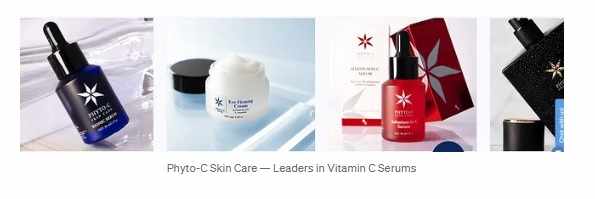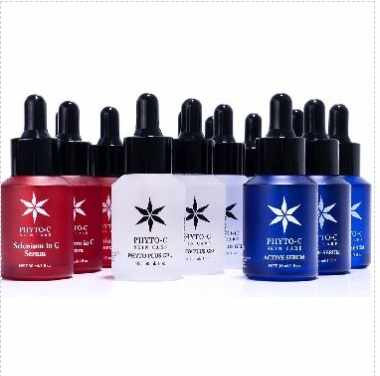
There’s a reason Vitamin C serums have a near-cult following in skincare routines—they promise that fresh, “I-woke-up-like-this” glow we all crave. But here’s the twist: not everyone’s skin loves Vitamin C right away. For some, it’s a match made in beauty heaven; for others, it’s redness, tingling, or tiny breakouts that say otherwise. The truth is, Vitamin C isn’t one-size-fits-all. The secret lies in choosing the right texture, strength, and formula for your skin type. So before you blame your serum for acting up, let’s decode how this powerful antioxidant really works—and how to keep your skin barrier happy while still reaping every brightening benefit.
Understanding How Vitamin C Works
Vitamin C supports collagen production, reduces pigmentation, and protects against free radical damage caused by pollution and UV exposure. However, it’s also an acid—usually L-ascorbic acid—which means it can be potent and sometimes harsh if overused. Concentrations between 10–20% are generally safe for most skin types, but it’s always wise to start slow and build tolerance. Using it correctly can completely transform your skincare results.
1. Oily & Combination Skin: Keep It Lightweight
If your skin often feels greasy or shiny, a lightweight formula is essential. Opt for a vitamin C serum for oily and combination skin that uses L-ascorbic acid in a water-based texture. It absorbs quickly and won’t clog pores. Avoid heavy oils or thick creams that may worsen congestion. A common mistake oily skin types make is applying too much product or layering it under a rich moisturizer—this can lead to breakouts. Instead, apply a few drops on clean, dry skin in the morning before sunscreen.
2. Dry Skin: Moisture Matters Most
Vitamin C can sometimes enhance dryness if it isn’t paired with enough hydration. To counter that, look for a hydrating vitamin C serum for dry skin that blends antioxidants with ingredients like hyaluronic acid, glycerin, or vitamin E. These not only lock in moisture but also reduce flakiness and irritation. One big mistake dry-skin users make is skipping moisturizer after application. Always follow your serum with a nourishing cream to seal everything in and create a dewy glow that lasts all day.
3. Sensitive Skin: Go Gentle and Gradual
If your skin gets red or tingly easily, the trick is to go slow. A gentle vitamin C serum for sensitive skin—preferably using derivatives like magnesium ascorbyl phosphate or sodium ascorbyl phosphate—is ideal. These forms are less acidic and reduce the risk of irritation. Start using it just two to three times a week and increase frequency once your skin adjusts. Another tip: avoid applying vitamin C right after exfoliating or shaving, as that can heighten sensitivity.
4. Dermatologist-Approved Choices for Oily Skin
If you’re unsure what’s safe for you, it’s smart to turn to a dermatologist-approved vitamin C serum for oily skin. These formulas are tested to balance excess sebum while keeping pores clear. Many also include niacinamide—a great companion to vitamin C—as it refines texture and prevents oxidation. The mistake to avoid here? Mixing too many activities at once. Using exfoliating acids (like glycolic or salicylic acid) with vitamin C on the same day can strip your barrier. Alternate days instead.
Common Mistakes to Avoid
Overusing it: More is not better in this case. Start slow and build tolerance.
Skipping sunscreen: Vitamin C enhances protection but doesn’t replace SPF.
Layering incorrectly: Always apply vitamin C on dry skin before moisturizer.
Mixing incompatible actives: Avoid using it with retinol or strong acids simultaneously.
Using expired products: Vitamin C oxidizes easily—store it in a cool, dark place and replace it if it turns orange or brown.
The End
Vitamin C can work wonders for every skin type—when used correctly. The secret lies in choosing the right formulation for your specific needs and introducing it slowly. Whether your skin is oily, dry, or sensitive, understanding these nuances will help you get that healthy, luminous glow without the irritation.
If you’re looking to upgrade your natural look and skin, consider trying Phyto-C Skincare—a brand known for its science-backed, dermatologist-formulated vitamin C serums designed for every skin type.
FAQs
Can sensitive skin safely use vitamin C serum?
The answer is yes—with the right product and technique. Patch-test first and introduce it gradually into your routine. Sensitive skin can benefit immensely from vitamin C’s brightening and anti-aging powers when used wisely.
What kind of vitamin C serum is best for oily skin?
It’s best to use vitamin C in the morning and retinol at night. Using both at the same time can irritate, especially if you have sensitive skin.
Why does my skin sting after applying vitamin C serum?
A mild tingle can be normal at first, but burning means it’s too strong for you. Try a lower concentration or a derivative-based formula for comfort.
Which vitamin C serum works best for dry skin?
Look for one with both vitamin C and humectants—it should feel silky, not sticky. Hydration-rich blends ensure your glow looks natural, not irritated.










Write a comment ...